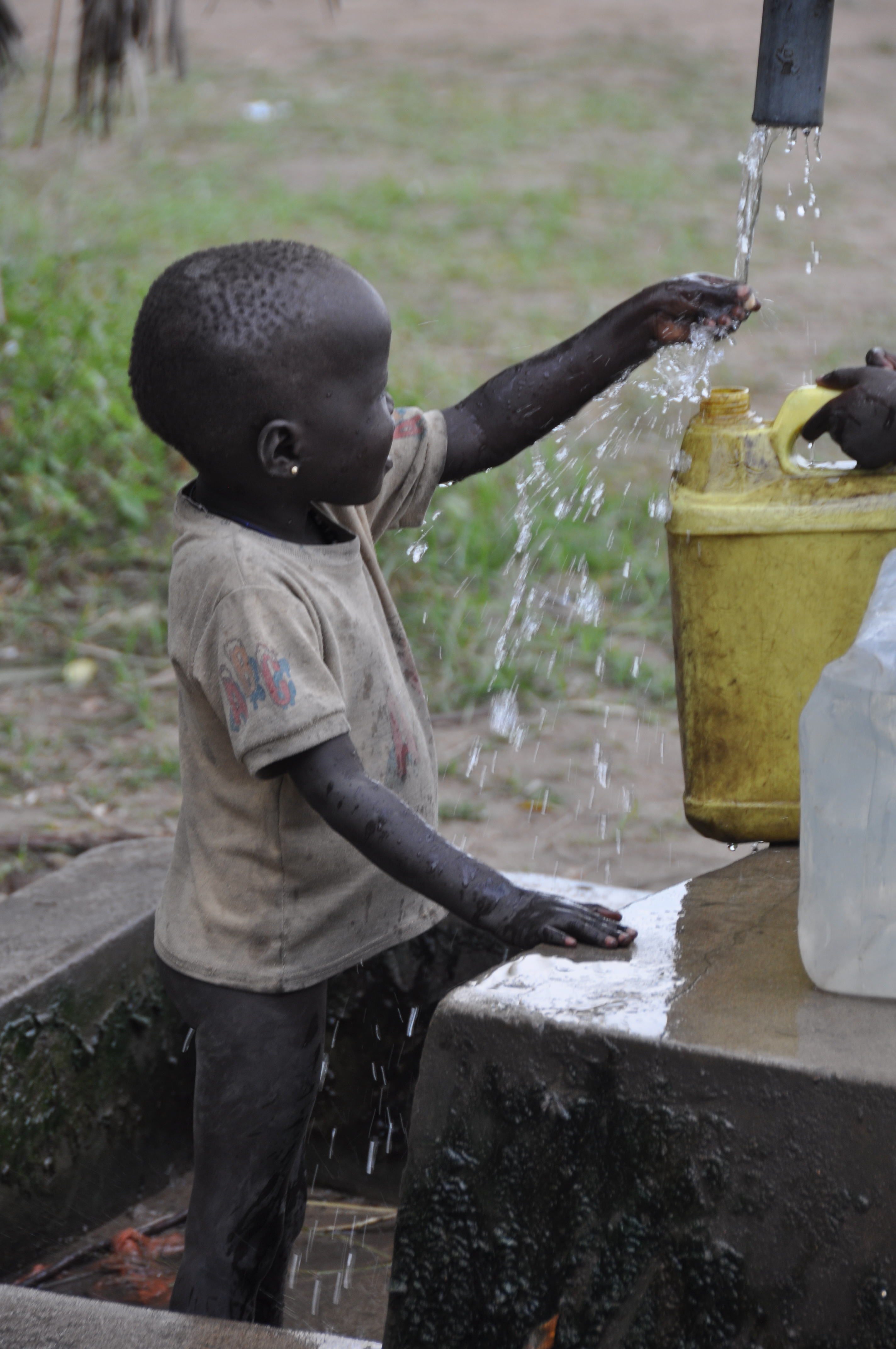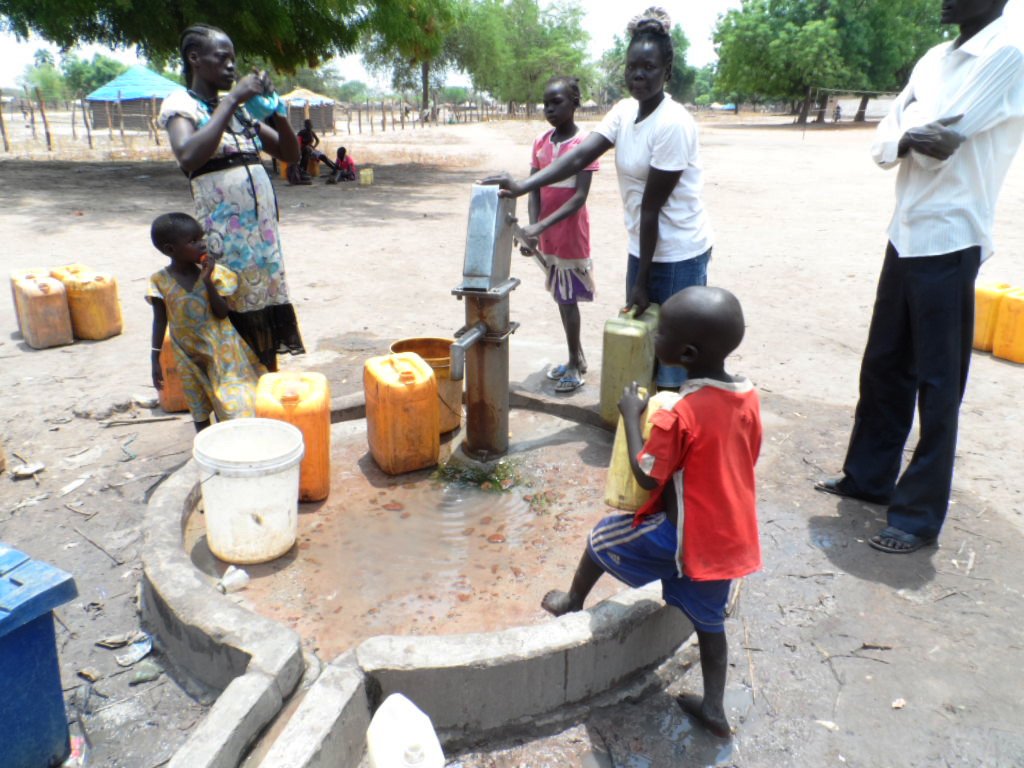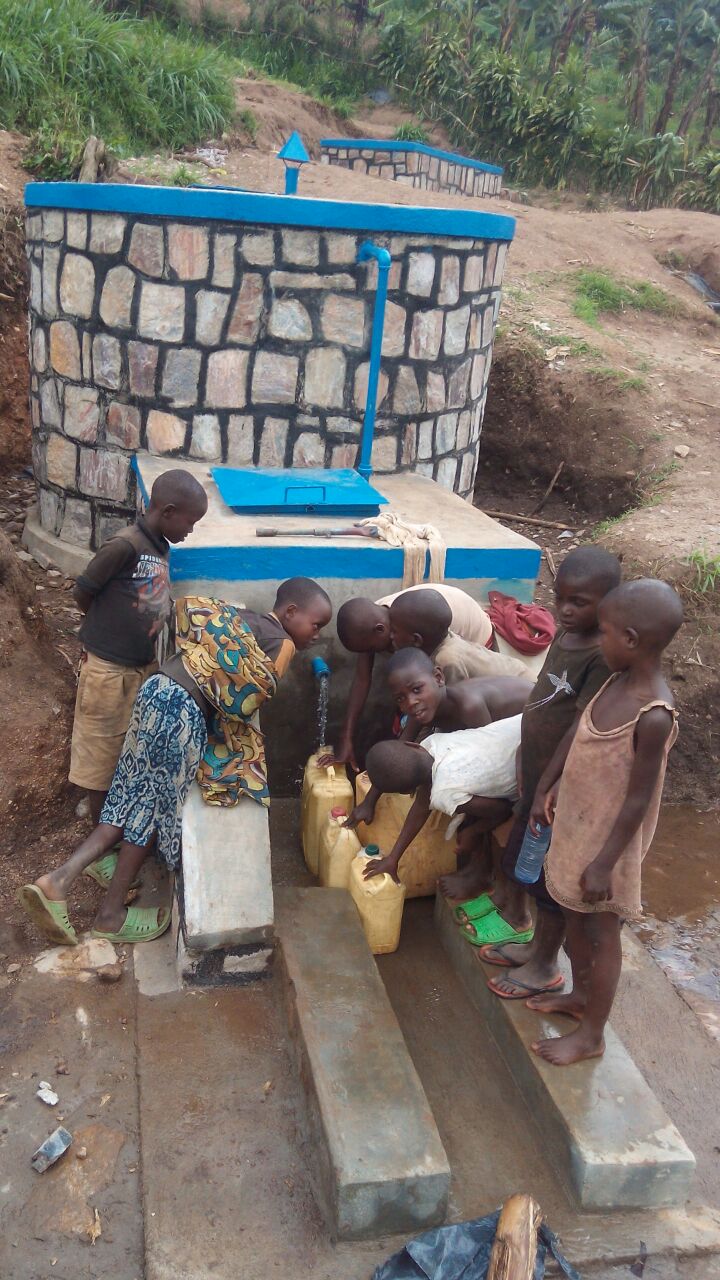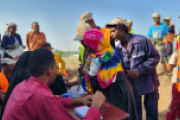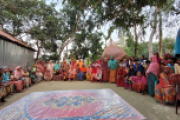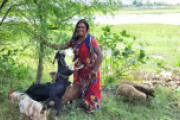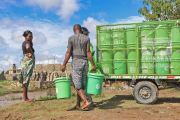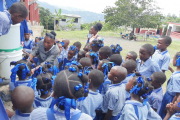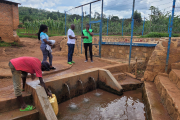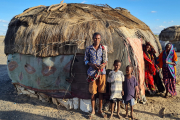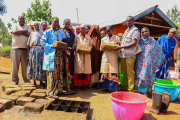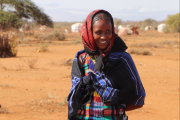Water is the elixir of life, as the saying goes. But in southern countries, it is commonplace to have no or only very limited access to the most basic of all goods. The climate is hot and often very dry, rivers and water points carry little of it, a public supply does not exist in many countries, wells and pumps are scarce or in desolate condition. The water, which the population consumes by necessity, comes from holes in the ground and swampy areas or stands on the fields after rain. It is often polluted or hygienically dangerous - or, as in the case of South Sudan, it can also be poisoned by industrial raw material extraction. But not only in terms of quality, also in terms of quantity, the available water is often insufficient for consumption and for household use. According to the United Nations, about two billion people do not have clean and consistently available drinking water.
Drinking when thirsty, personal hygiene as needed, washing clothes, and keeping the household clean: for many people, meeting these basic essential needs is becoming a privilege. Irrigation in agriculture and watering of livestock are further requirements that often add to the difficulty. Sign of Hope is committed to providing clean drinking water to those most in need. By building or repairing drinking water wells in areas that are inadequately supplied, by capturing and securing mountain springs, extending piping systems, or constructing underground cisterns. This is done through our partner organisations in the desert of Ethiopia as well as in the mountains of Rwanda.
In direct context to water are also water-related hygiene and decent sanitation. The situation in our target countries here is mostly inadequate to extremely precarious. A lack of toilets has a direct negative impact on people's health and well-being. More than four billion people worldwide lack these important sanitary facilities. Together, we make it possible to build latrines and teach basic hygiene skills, as well as train hygiene multipliers and conduct information campaigns.
Integrated into our partners' projects as well as our own are always measures to build knowledge and self-reliance on the part of the beneficiary population: for example, water committees are formed to explain the technology to other community members and keep an eye on its proper use, disseminate information on the good and varied use of water, or collect small water fees with which they can make small repairs. Whether in preparation, implementation or operation, the projects become those of the people they benefit.


 Donate now
Donate now
